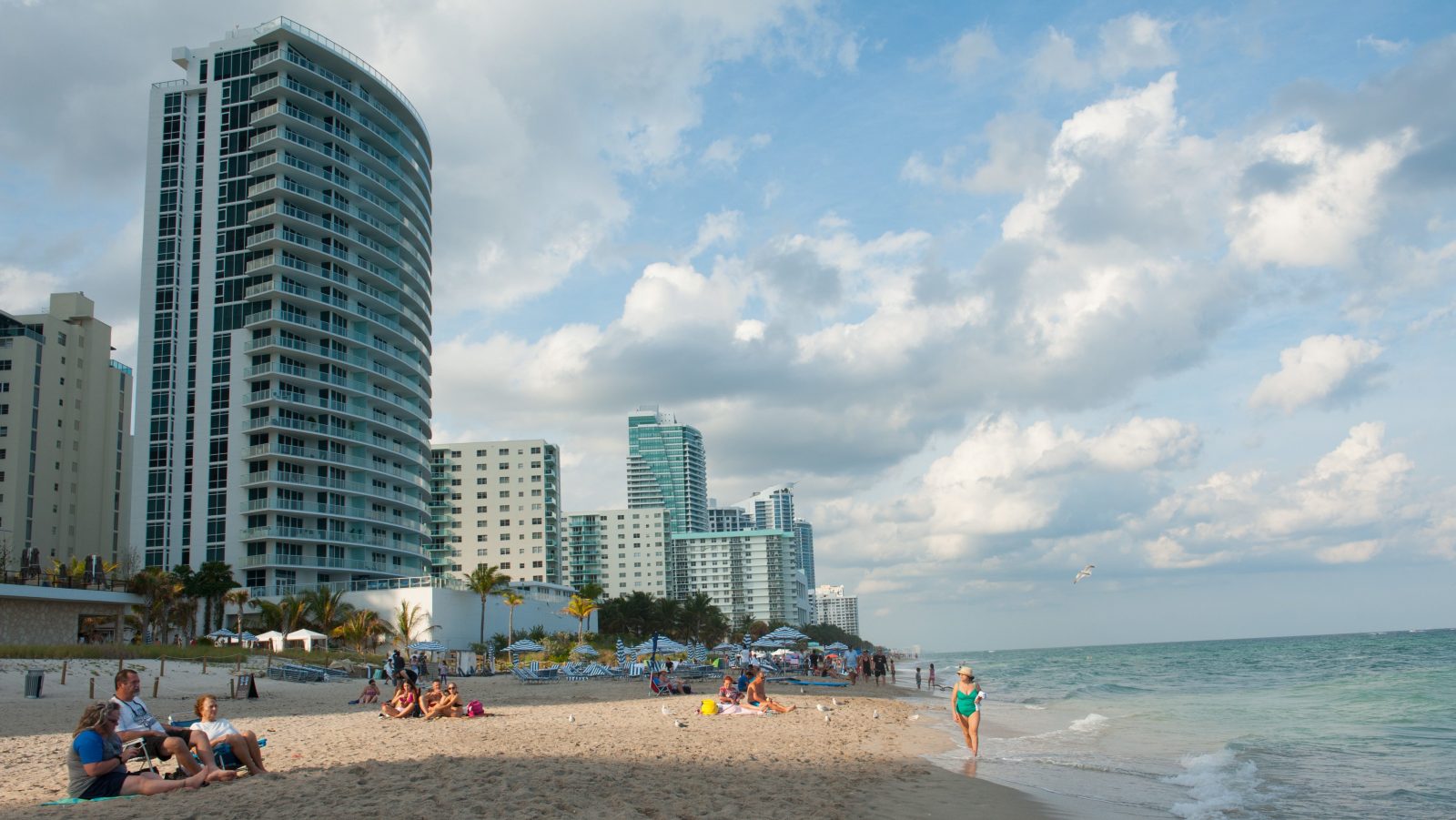Before it was pumped, leveed, and paved, south Florida looked like a network of spongy wetlands. Over the course of about a century, those damp lowlands were transformed into a paradise for more than 9 million people, complete with a bustling tourism industry and trillions of dollars worth of infrastructure. Now, the flattest state in the union is uniquely threatened by sea-level rise: the lower third of the state could be submerged in just a few generations. The ocean is threatening to turn paved paradise back into a sponge.
After years of dragging their feet, Republican lawmakers in the state are trying to prevent that from happening — but they still aren’t talking about the most necessary solutions to the problem.
Last week, Republican state legislators in Florida announced a suite of measures intended to save the Sunshine State from rising seas. The central plank of the plan, which is widely expected to become law, will direct $100 million per year over the next two years toward protections against sea-level rise and flooding. As a result, homeowners who pay to raise their houses higher off the ground will get a tax break. Local governments will get funding to come up with targeted strategies to deal with impending rise. The Florida government, in partnership with the University of South Florida, will establish a Flood Hub for Applied Research, which will exclusively focus on the state’s exposure to flooding and how to reduce those risks.
Carlos Curbelo, a Republican and former U.S. representative for south Florida, told Grist that the $100 million per year figure might seem small from a federal perspective, where funding for climate adaptation usually comes in billion dollar increments, but it’s a significant investment at the state level. “The fact that it’s being championed by Republicans makes it even more noteworthy,” he said. “I’ve always believed that the bipartisan solution to climate change will be born in Florida.”
It’s not often that Republican state senators and representatives introduce legislation that addresses the effects of climate change. While blue states rushed to fill the climate action void left by the Trump administration over the past four years, red states pulled in the opposite direction: passing laws to undermine climate science, shore up coal and other polluting sources of energy, and withdraw from regional cap-and-trade agreements. Republicans in Oregon literally fled the state to avoid voting on a carbon pricing bill.
The same story has largely played out in Florida, where former Governor Rick Scott, who served between 2011 and 2019, stifled climate science and even banned environmental regulators from using the term “climate change.” But that’s starting to change, in no small part because Florida doesn’t have the luxury of ignoring climate change anymore.
Last summer, the state’s current Republican governor, Ron DeSantis, signed Florida’s first climate-related law ever, SB 178, into law. It prohibits the spending of tax dollars on projects in coastal zones that have not taken rising sea levels into account. The new suite of measures builds on that first foray into climate change mitigation.
“Coming out of Governor Scott’s legacy, this is better than nothing,” Yoca Arditi-Rocha, executive director of the nonprofit, Florida-based CLEO Institute, told Grist. “It’s a good first step.” But Arditi-Rocha pointed out that a bill to counteract sea-level rise is not the same as a bill that addresses the root causes of climate change. “We’re at the frontlines of the climate crisis, and flooding is not the only issue we’re experiencing,” Arditi-Rocha said, citing extreme weather, algal blooms, and rising temperatures as other consequences of planetary warming in Florida.
Preston Robertson, president and CEO of the Florida Wildlife Federation, told Grist that the bills are a Band-Aid solution to the state’s problems. “We need to try to stem rising seas at the source, which is to decrease these power sources that create greenhouse gases,” he said, “and that’s not in any of these bills.”
The fact that the bills don’t direct any funding or attention to managed retreat — the methodical and coordinated movement of people away from risks (in this case, flooding) — is even more concerning. Even if Florida’s state legislators were able to pass a comprehensive plan to address emissions, some sea-level rise is already baked in. At some point not that far in the future, south Florida will be covered in water. People will have to move elsewhere before that happens. But neither political party in Florida — or at the federal level, for that matter — has made any real effort to confront that reality, perhaps because the thought of retreating from sea-level rise has implications that are too grim to bear.
“How in the world do you do that when there are trillions of dollars in property just in Miami-Dade alone?” Robertson asked. “It’s almost impossible to get your mind around the fact that if the seas keep rising, those residences and commercial structures are going to become uninhabitable.”
Curbelo said that managed retreat is still a taboo topic in his state. “I think both parties want to avoid that issue for as long as possible,” he said. “It is a bipartisan issue in the sense that no party really wants to talk about it.”
Communities on the front lines of sea-level rise don’t have the luxury of avoiding the issue. In 2019, local officials in the Florida Keys informed residents that they will not be able to raise every street above flood lines. It “sent shock waves” through communities in the Keys, Curbelo said. Soon, those residents will have to move elsewhere. But there are still a thousand open-ended questions about how that will work. “Where do they go, into the Everglades?” Robertson said. “I have no answer for that.” The sooner leaders help them figure it out, the less painful retreat will be.



